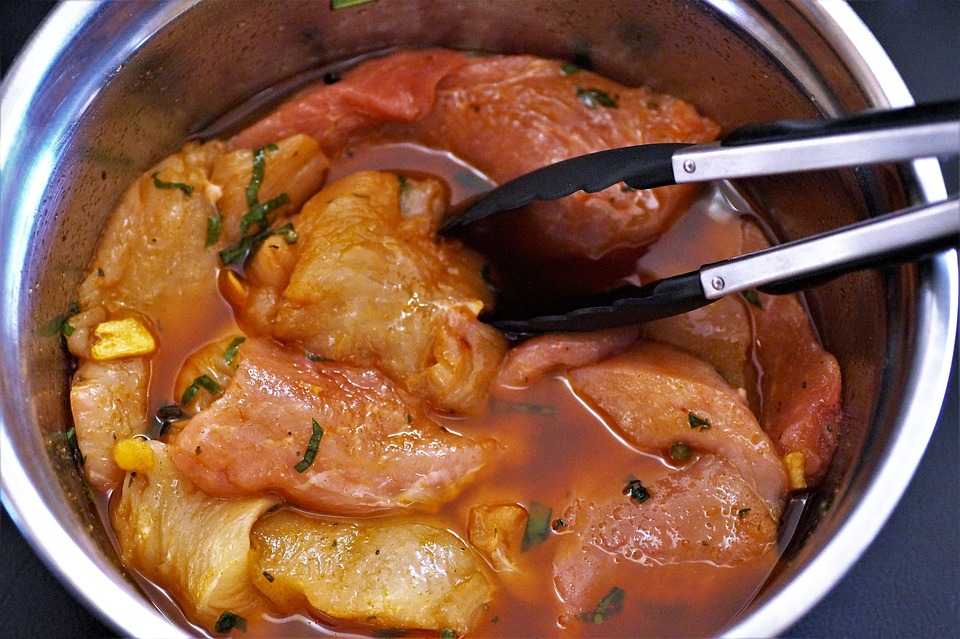Tips for a Healthy and Tasty Grill
To grill or not to grill? This is the “burning” dilemma that torments the spirits of many healthy food lovers. Here are our tips for a safe barbecue and a healthy and tasty barbecue.
There are two types of potentially carcinogenic substances that can occur during grilling: heterocyclic amines (HCAs) and polycyclic aromatic hydrocarbons (PAHs).
HCAs are produced when the meat turns black, which can happen when the meat is roasted, “sealed” in a pan, or grilled on the stove.
The PHA’s (polycyclic aromatic hydrocarbons) are found in smoke and come from fats and liquids dripping on hot coals.
So before you give it all up, here are our tips for a safe and healthy BBQ.
1) The Importance of Marinating
If you think that marinating is only used to flavor food before cooked, you are wrong. Marinating the meat keeps it soft and moist, almost completely neutralizing the risk of the formation of potentially carcinogenic substances.
2) How long does the meat take to marinate?
The marinating time depends on the type of food you want to grill. Preferably use a glass container, avoid plastic and metal that can release toxins. Put everything in the fridge, covered.
For red meat, a treatment of 4 to 6 hours is necessary. For pork and white meat, enough for 2 to 4 hours. Fish, on the other hand, is ready earlier, 30 minutes to 2 hours is sufficient.

3) What Is the Best Meat?
If you decide to marinate the meat from your grill, for an extra advantage: that you can choose leaner pieces to combine with the classic pieces.
Sure, slices of pork belly or capocollo steak are juicy and tasty. However, it is also true that excess fat dripping on the grill can release toxins we talked about earlier.
4) Fish
Choosing lean meat is already part of the healthy grilling guidelines, but the best option to protect your health against HCA’s is to choose lean fish. The fish cooks faster and contains no surface fats that can cause flare-ups.
It is easier to grill the fish steaks, tuna, salmon, or swordfish, easy to cook, and do not risk getting stuck on the grill. The same applies to whole fish, such as sea bream, sea bass, and the great trout, which becomes irresistible when grilled and has many nutritional properties.
For smaller fish, such as sardines, it is better to use a grill that allows you to turn them at the right time without loosening them from the metal. Otherwise, you risk breaking them.
The grilled crustaceans are also delicious: king prawns and scampi are very easy to cook thanks to the shell that protects them from excess heat.

5) Go Veg!
HCA’s are formed only in meat, so a vegetarian choice such as eggplant, zucchini, cauliflower, or peppers eliminates this problem at the root. Also, try putting Tofu or Seitan to grill experience something different.
6) Use a Clean Grill
Ensure that the grill is properly cleaned and remove any residue from the previous barbecue, which can release toxic substances by carbonizing.
7) Lower the Heat
Resist the temptation to cook everything on high heat. Grill with medium intensity to avoid flames, parts that are too roasted or burnt.

8) Take Your Time
Don’t be in a hurry; this is the golden rule for a healthy and risk-free (and delicious) grill.
The meat must be at room temperature to obtain a homogeneous preparation and prevent it from scorching on the surface and remaining raw inside. Take it out of the refrigerator at least one hour in advance.
Smaller pieces of meat will cook faster, reducing the risk of blackening. Choose kebabs, skewers, thin slices of beef, and chicken breasts.
Do you have any other tips in mind? Share it with us in the comments below!



